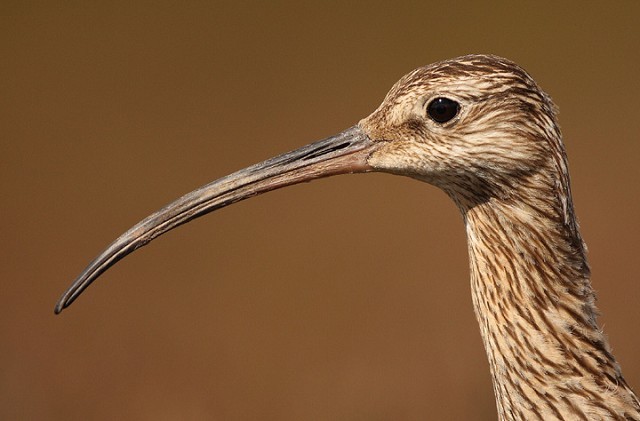Muck in to make peat history
With a staggering 94% of lowland peat bog habitats in the UK now destroyed by peat extraction, the RSPB is urging gardeners to go peat-free this Easter. This weekend is one of the most popular for the nation to hit garden centres, and there is no better time to find peat alternatives. Around a fifth of the annual peat purchase for gardens is over the four-day break as traditionally people spend more time in their gardens with brighter weather and longer evenings.

Curlew, Bransdale, North Yorkshire (Photo: John Dickenson)
New government figures show that 54% of materials used in soil improvers in UK gardens are now peat-free, which is the highest ever percentage in the UK. Usage of materials involving peat has gradually declined over recent years and has dropped by almost 20% in the last decade alone. But the RSPB is worried that many gardeners who have not yet made the switch may still not be aware of the damage they are doing by using peat, and may even think of it as a 'green' product. The charity wants even more people to go peat-free this year.
Peat usage destroys rare wildlife habitat. It takes thousands of years to form, at a rate of just one millimetre each year. Its slow growth means that its commercial use is not sustainable and wildlife living in peat bogs could face extinction as the bogs are destroyed. Birds like Snipe, Curlew and Skylark breed on peat bogs, as well as a variety of butterflies and dragonflies. Peat supports many species of bog mosses, rare flowering plants such as cranberry, Bog Myrtle and Bog Asphodel, and insectivorous plants like sundews and butterworts. Extracting peat also exacerbates climate change by releasing carbon dioxide that would otherwise be safely stored in the ground.

Common Snipe, Marshside RSPB, Lancashire (Photo: David Cookson)
Chris Beardshaw, award-winning garden designer and TV presenter, says: "Many gardeners don't realise the damage that peat causes and I'm sure once they do, they will be compelled to use other alternatives. Making your own compost or opting for peat-free products enriches your soil just as well. You can have beautiful gardens full of flowers, plants and wildlife without damaging the environment."

Vane Farm RSPB reserve, The Mire: peat bog restoration for former plantation (Photo: Andy Hay (rspb-images.com))
As well as buying one of the wide range of peat-free products available, you can make your own compost. Despite some peat suppliers still not coming clean about the impact of their products on climate change, other retailers are taking steps towards helping eradicate peat usage. Home improvement retailer B&Q has recently discontinued the sale of 100% peat bales in its stores, a move that the RSPB hopes will encourage other retail outlets to follow suit.

